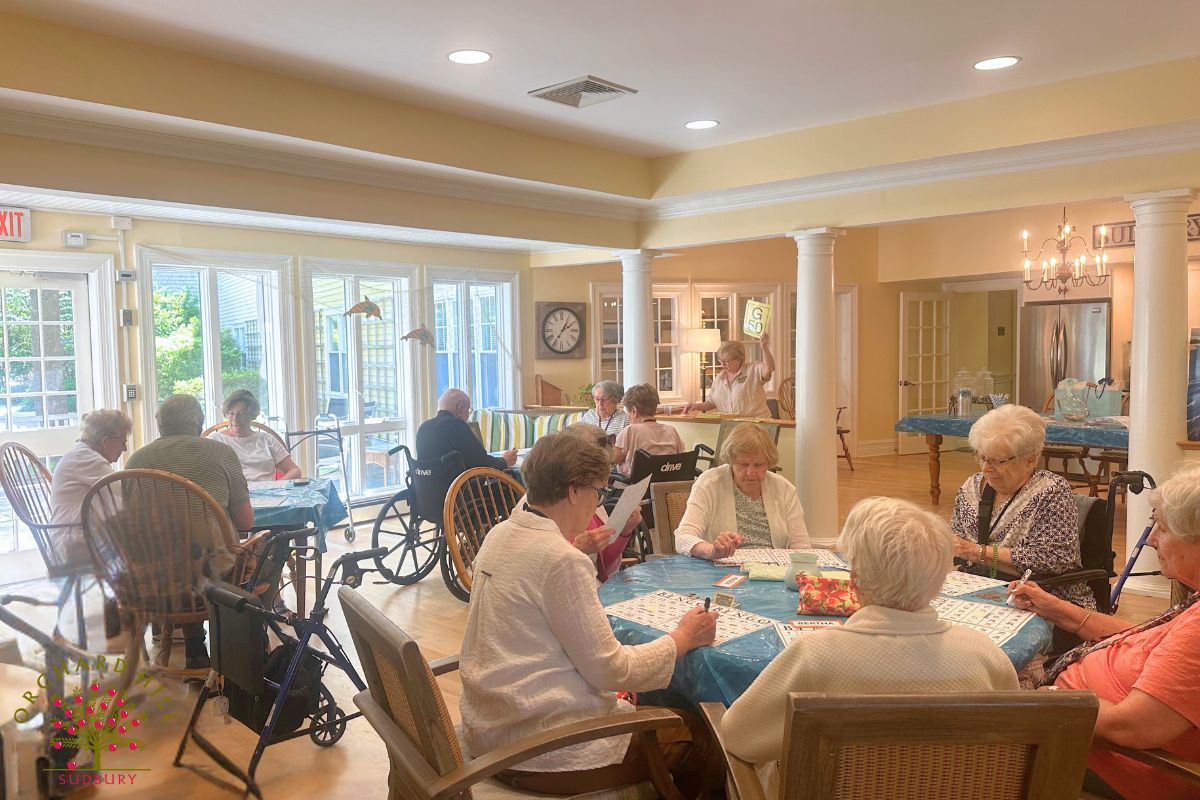Mild Cognitive Impairment Explained: How Orchard Hill Supports Residents with MCI
As we age, it is not unusual for memory changes to occur and many of these changes are considered to be a natural part of the aging process. Occasional age-related forgetfulness, such as misplacing glasses or keys, struggling to find the right word, missing a monthly bill payment, needing more time to think through a complex problem, or making a bad decision once in a while, is universally acknowledged as senescence, or the biological process of aging. Although at times frustrating or inconvenient, these are seen as minor issues that do not significantly interfere with daily living, managing one’s affairs or personal independence.
More impactful memory loss, however, is not a normal part of aging, and may indicate an undetected, underlying condition. Forgetting more things more often, missing important dates, appointments or events, displaying poor judgement, and experiencing difficulty following conversations are causes for concern. If an individual or loved ones observe persistent, troublesome changes in thinking or memory, it is important to seek medical assistance to understand the "why" of these symptoms and to develop a treatment/management plan.
Some older adults experiencing increased difficulty with memory and thinking may be diagnosed with mild cognitive impairment (MCI). MCI is a state where memory decline is greater than normal aging, yet still allows individuals to maintain a degree of independence. The main symptoms of MCI are a deterioration of the following skill sets: attention, judgment, language, memory, planning and reasoning. While MCI can be a risk indicator for dementia, not everyone with MCI will ultimately develop dementia.
At Orchard Hill, we recognize that memory changes or a diagnosis of MCI does not necessarily indicate the need for someone to live in a secure memory care facility. In fact, many people benefit most from a more supportive environment that offers gentle structure, social connection, and cognitive enrichment, while still honoring one’s personal freedom and dignity. That’s why we offer Mild Cognitive Support Services, designed specifically with this balance in mind. At Orchard Hill, we believe in meeting people where they are and supporting them along their lives’ journey.
The Mild Cognitive Support Services program at Orchard Hill is designed for individuals who experience forgetfulness, occasional confusion, or challenges with planning and organization, but who are still mostly independent. Our goal is not to take away a person’s autonomy, which is a hallmark of dementia care; instead, we empower residents to experience a sense of personal agency, while offering the guidance they need to be successful. A supportive environment for someone with MCI offers a combination of physical accommodations, mental stimulation, social engagement and consistent routines. At Orchard Hill, our beautiful, comfortable, safe and clutter free environment is filled with both natural and soft lighting, lowering the risk of resident confusion, falls, stress and anxiety. An established routine with scheduled mealtimes and a prominently posted, structured daily schedule of activities offers residents multiple opportunities to learn new skills, engage in physical exercise, pursue hobbies and interests, all while gathering in community with others. We interact with each resident with unwavering patience and empathy, maintaining direct eye contact and consistently offering positive reinforcement and reminders when the need is indicated. By providing the right level of support at the right time, we assist our Orchard Hill residents in maintaining independence longer, building confidence, lowering frustration, feeling included rather than separated, staying socially connected and emotionally supported.
By offering Mild Cognitive Support Services within our assisted living community, residents thrive in a supportive environment, one thoughtfully designed to build upon individual strengths, while focusing on maintaining a sense of independence and self-determination. We are committed to building trusted relationships with families through open, ongoing communication and regular in-person interaction, from the first day a resident is welcomed at Orchard Hill. As a result, if advanced dementia care is advised at a future date, families and residents find comfort and support in knowing our experienced, well-connected and caring team of professionals are present to partner through any recommended resident transitions.



